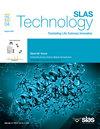Advanced NLP-driven predictive modeling for tailored treatment strategies in gastrointestinal cancer
IF 3.7
4区 医学
Q3 BIOCHEMICAL RESEARCH METHODS
引用次数: 0
Abstract
Gastrointestinal cancer represents a significant health burden, necessitating innovative approaches for personalized treatment. This study aims to develop an advanced natural language processing (NLP)-driven predictive modeling framework for tailored treatment strategies in gastrointestinal cancer, leveraging the capabilities of deep learning. The Resilient Adam Algorithm-driven Versatile Long-Short Term Memory (RAA-VLSTM) model is proposed to analyze comprehensive clinical data. The dataset comprises extensive electronic health records (EHRs) from multiple healthcare centers, focusing on patient demographics, clinical history, treatment outcomes, and genetic factors. Data preprocessing employs techniques such as tokenization, normalization, and stop-word removal to ensure effective representation of textual data. For feature extraction, state-of-the-art word embeddings are utilized to enhance model performance. The proposed framework outlines a comprehensive process: data collection from EHRs, preprocessing to prepare the data for analysis, and employing NLP techniques to extract meaningful features. The RAA optimization algorithm significantly improves training efficiency by adapting learning rates for each parameter, addressing common issues in gradient descent. This optimization enhances feature learning from sequential clinical data, enabling accurate predictions of treatment responses and outcomes. The overall performance in terms of F1-score (89.4%), accuracy (92.5%), recall (88.7%), and precision (90.1%). Preliminary results demonstrate the model's strong predictive capabilities, achieving high accuracy in predicting treatment outcomes, thereby suggesting its potential to improve individualized care. In conclusion, this study establishes a robust foundation for employing advanced NLP and machine learning techniques in the management of gastrointestinal cancer, paving the way for future research and clinical applications.
针对胃肠癌定制治疗策略的高级 NLP 驱动型预测模型。
胃肠道癌症是一个重大的健康负担,需要创新的个性化治疗方法。本研究旨在利用深度学习的能力,开发一种先进的自然语言处理(NLP)驱动的预测建模框架,用于定制胃肠道癌症的治疗策略。提出了弹性亚当算法驱动的多功能长短期记忆(RAA-VLSTM)模型,用于分析综合临床数据。该数据集包括来自多个医疗保健中心的大量电子健康记录(EHRs),重点关注患者人口统计、临床病史、治疗结果和遗传因素。数据预处理使用诸如标记化、规范化和停止词删除等技术来确保文本数据的有效表示。对于特征提取,使用最先进的词嵌入来提高模型性能。提出的框架概述了一个全面的过程:从电子病历中收集数据,预处理以准备分析数据,并采用自然语言处理技术提取有意义的特征。RAA优化算法通过适应每个参数的学习率,显著提高了训练效率,解决了梯度下降中的常见问题。这种优化增强了从连续临床数据中学习特征,从而能够准确预测治疗反应和结果。总体表现为f1得分(89.4%)、准确率(92.5%)、召回率(88.7%)和准确率(90.1%)。初步结果表明,该模型具有较强的预测能力,在预测治疗结果方面具有较高的准确性,具有改善个体化护理的潜力。总之,本研究为采用先进的NLP和机器学习技术管理胃肠道癌症奠定了坚实的基础,为未来的研究和临床应用铺平了道路。
本文章由计算机程序翻译,如有差异,请以英文原文为准。
求助全文
约1分钟内获得全文
求助全文
来源期刊

SLAS Technology
Computer Science-Computer Science Applications
CiteScore
6.30
自引率
7.40%
发文量
47
审稿时长
106 days
期刊介绍:
SLAS Technology emphasizes scientific and technical advances that enable and improve life sciences research and development; drug-delivery; diagnostics; biomedical and molecular imaging; and personalized and precision medicine. This includes high-throughput and other laboratory automation technologies; micro/nanotechnologies; analytical, separation and quantitative techniques; synthetic chemistry and biology; informatics (data analysis, statistics, bio, genomic and chemoinformatics); and more.
 求助内容:
求助内容: 应助结果提醒方式:
应助结果提醒方式:


